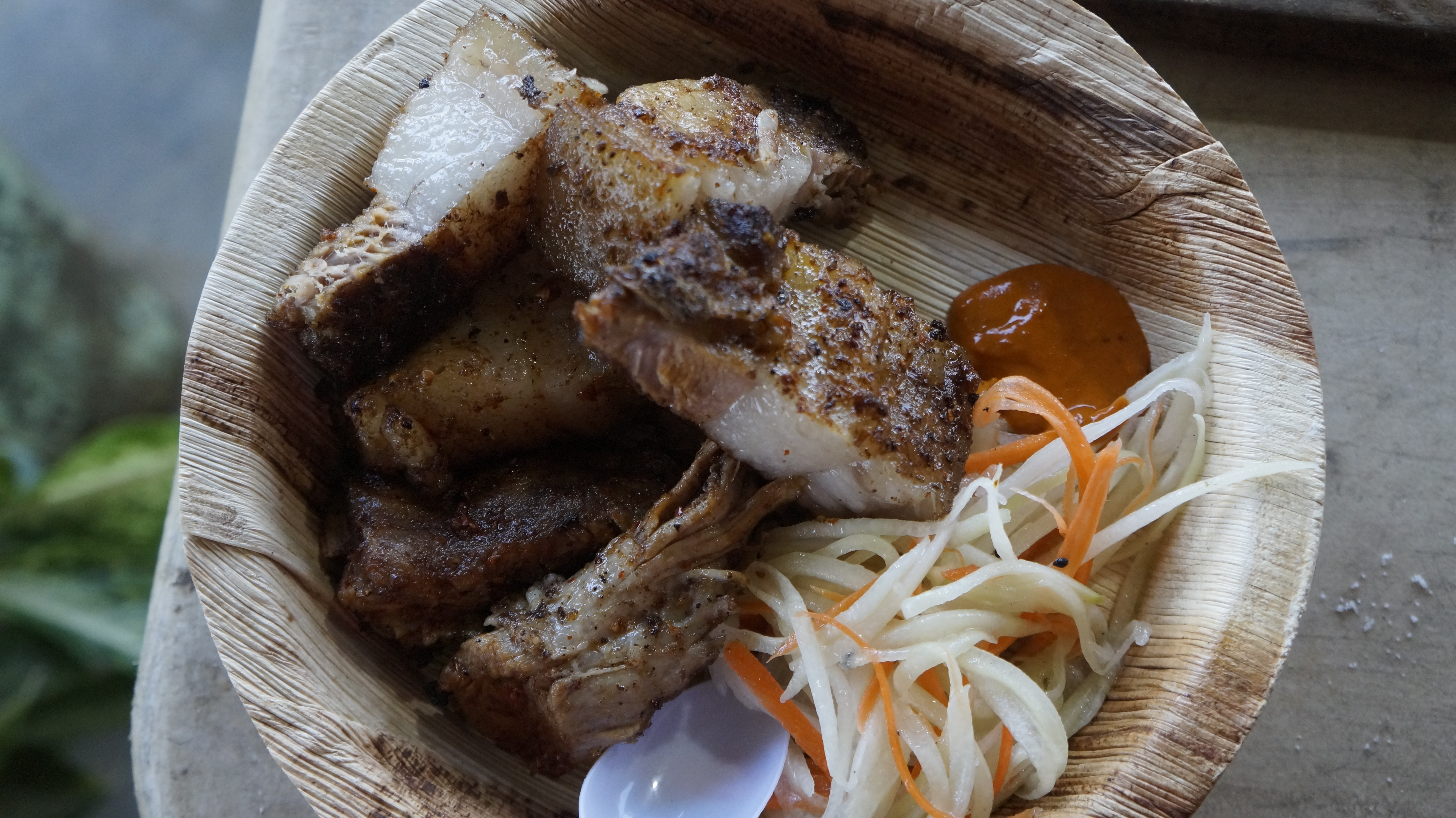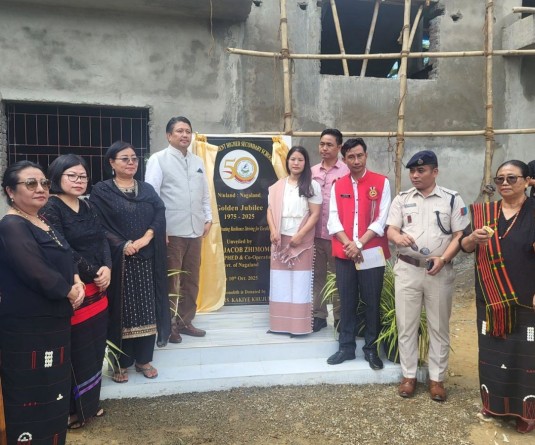1st Earth Market rediscovers Naga produce/cuisine

A dish served at the Earth Market held in Dimapur on September 27. (Morung Photo)
Morung Express News
Dimapur | September 27
The first ever Earth Market was officially open to the people of Nagaland this evening in Dimapur. It is organized by Slow Food Community Nagaland, which signed a declaration with the International Slow Food Community in September 2018.
Held at Mandeville Garden, HK Khulu Road, Purana Bazar, Dimapur, the first day of the 2-day event saw people buying basketfuls of fresh local produce straight from Community Garden, Ghathashi village, under Pughoboto sub-division, Zunheboto.
The produce included locally grown fresh vegetables – varieties of green leaves, pumpkin, ginger, yam, fresh and dried Naga king chilli, eggplant, banana, squash, bamboo shoot and all sorts of pickles.
A few stalls were also put up; from a barbeque junction to a juice bar to the popular NEN stall of Chizami weaves. Apart from the rich indigenous products of Chizami weaves, the stall also has millets on sale. As live music played, people young and old, tasted the Naga indigenous buffet spread comprising of an array of delectable dishes by slow food Ghathashi.
Speaking to The Morung Express, founding member, Slow Food Community Nagaland and MLA, Vikheho Swu said this is a process, “just a beginning.” Delighted to have taken the first step, Swu said he has seen positive signs from the farmers. As the community strives to promote local produce, the team hopes to make the community ‘more vibrant’ in the coming years. While people in Dimapur go to Dillai gate for shopping, Swu hoped this community will grow and start buying from local farmers. While the Earth Market’s major objective is for producers, it is also to create balanced economies.
Chef and founder of the community, Joel Basumatari said slow food has the ideology of good, clean and fair food. Giving credit to the farmers, Basumatari said “because of them (farmers), we are chefs. Without their produce and ingredients, we cannot create new dishes.” Through this initial step, he hoped to create awareness on the importance of local indigenous produce, to protect food biodiversity, build links between producers and consumers, and raise awareness of some of the most pressing topics affecting the food system. He was optimistic on the rising popularity of organic produce in the state, stating that Naga food has much to offer.
Meanwhile, Chefs from Assam and Mumbai will be holding a workshop on day 2, the final day. The workshop will see a fusion of indigenous ingredients with different ideas and flavours, which will serve both the parties, Basumatari said.
After signing the declaration last year, the team adopted a model village garden; resulting in the Village Community Garden, Ghathashi.
There, farmers from different villages come to learn the tricks and trade of indigenous farming. Training on vermin composting, capacity building etc are also held, he said. It is also the only garden where they do not implement ‘slash and burn.’




